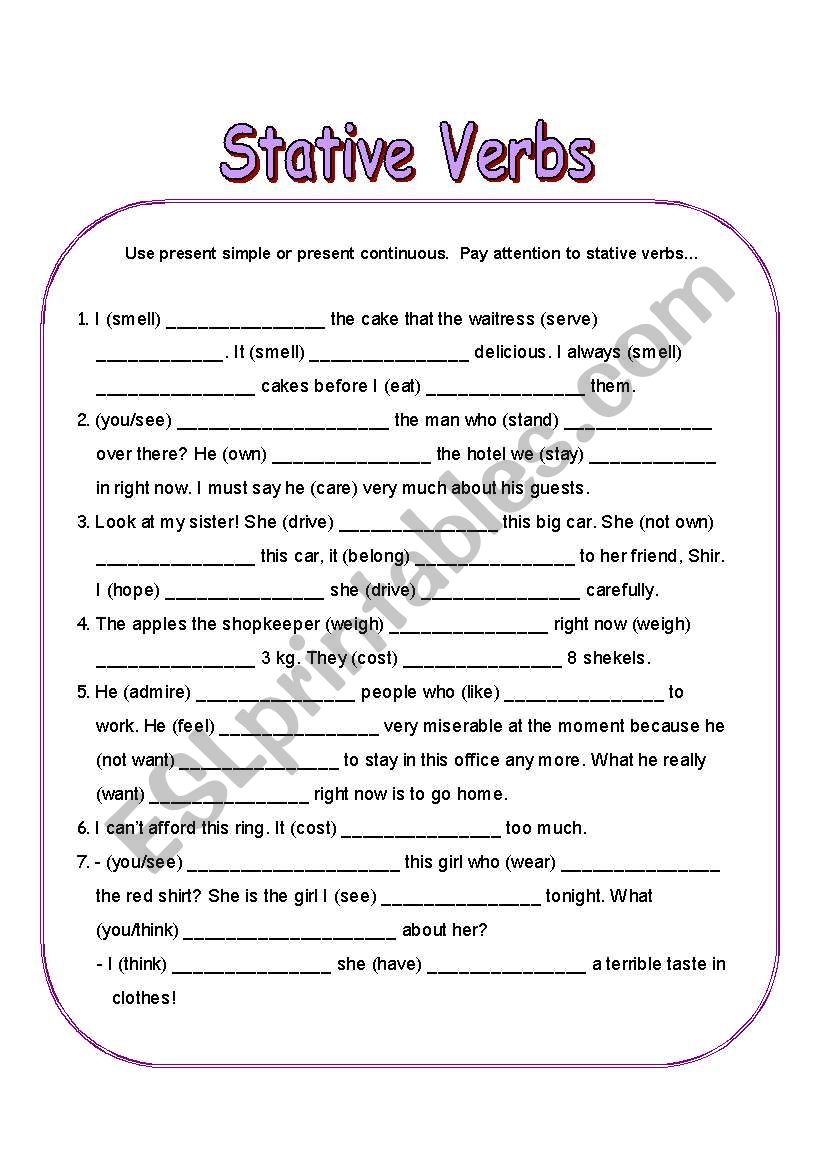
stative verbs ESL worksheet by sharon f
to taste = try something → dynamic Example The apple mousse tastes a bit sour. The food blogger is tasting the risotto. Stative verbs (state verbs): explanation, examples - online exercise with answers #494. Use the "Reference" button to view the short summarised explanation.
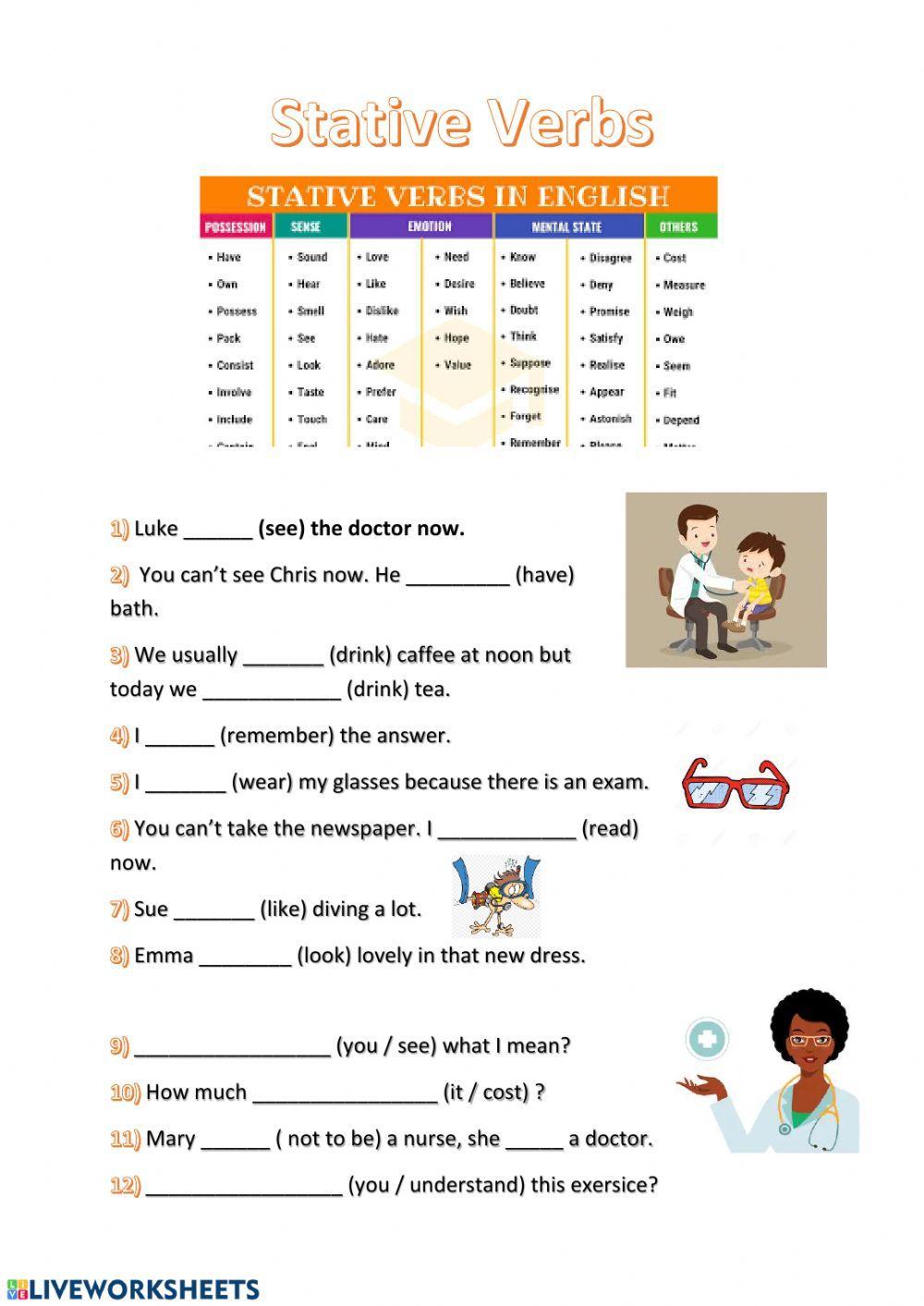
Stative Verbs worksheet Live Worksheets
Section 1: Present Simple and Present Continuous. Download the section 1 PDFs. Lesson 1: Stative verbs (2:20) Exercise - Stative verbs. Lesson 2: Present simple use: for the future (1:06) Exercise - Present simple use: for the future. Lesson 3: Present continuous use: temporary meaning (0:49) Exercise - Present continuous use: temporary situations.
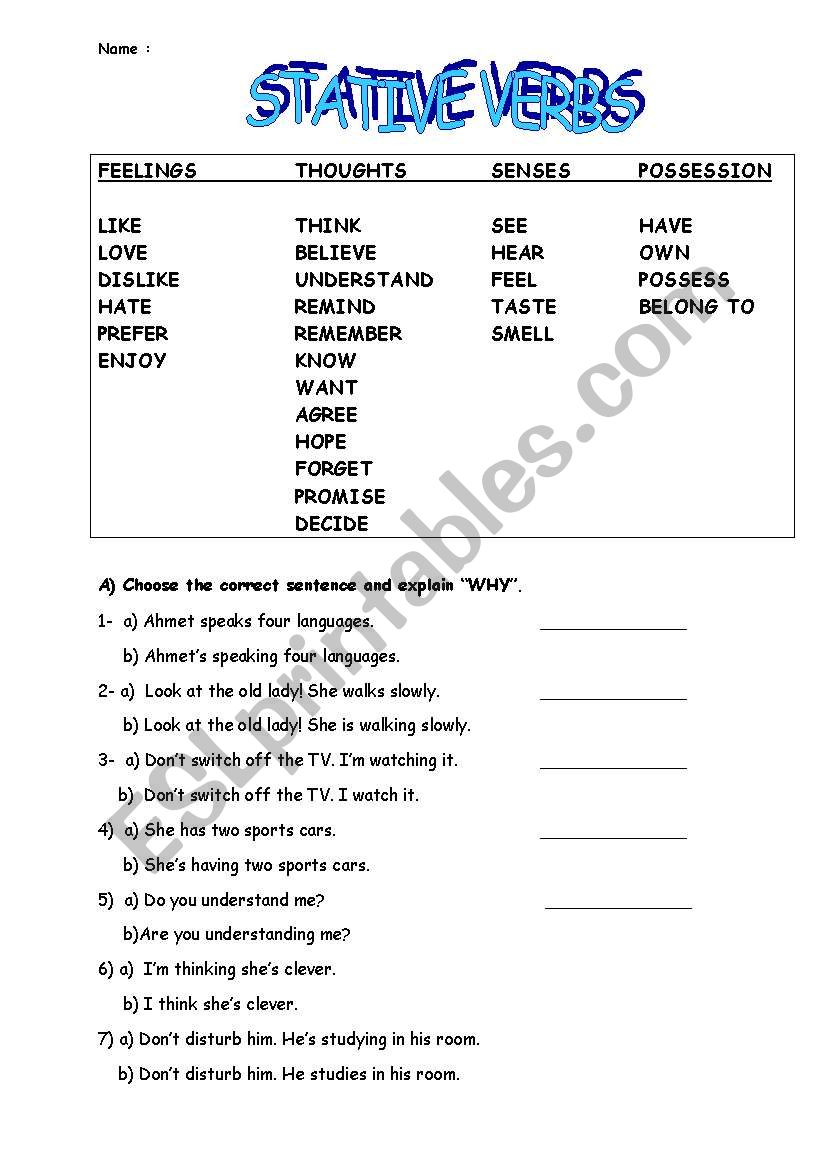
stative verbs worksheet stative verbs worksheets and online exercises
Start writing with Ginger Incorrect: I'm smelling your wife's wonderful spaghetti sauce. Correct: I smell your wife's wonderful spaghetti sauce. However, there are some verbs that look like they should be stative, but may appear in the ing form. These verbs differ in meaning to the stative verbs. Stative Verb Examples: see

Stative Verbs or Dynamic Verbs ESL Grammar Worksheet English Grammar
What Are Stative Verbs? Stative verbs are verbs that do not express action but a state. These verbs usually relate to thoughts, emotions, senses, relationships, and measurements. The most common stative verbs are feel, see, hear, have, like, and want. For example: I want a new laptop. She feels happy today because she received flowers.

Stative Verbs Exercise 1 Nouns Worksheet, English Grammar Worksheets
smell. sound. Let's look at some examples of how these verbs are used differently. Example sentences: "I think it is wrong to hit children." Here, think is a stative verb. It means "to have an opinion" and it cannot be used in the progressive form in this case. BUT. "I 'm thinking about buying a new car."
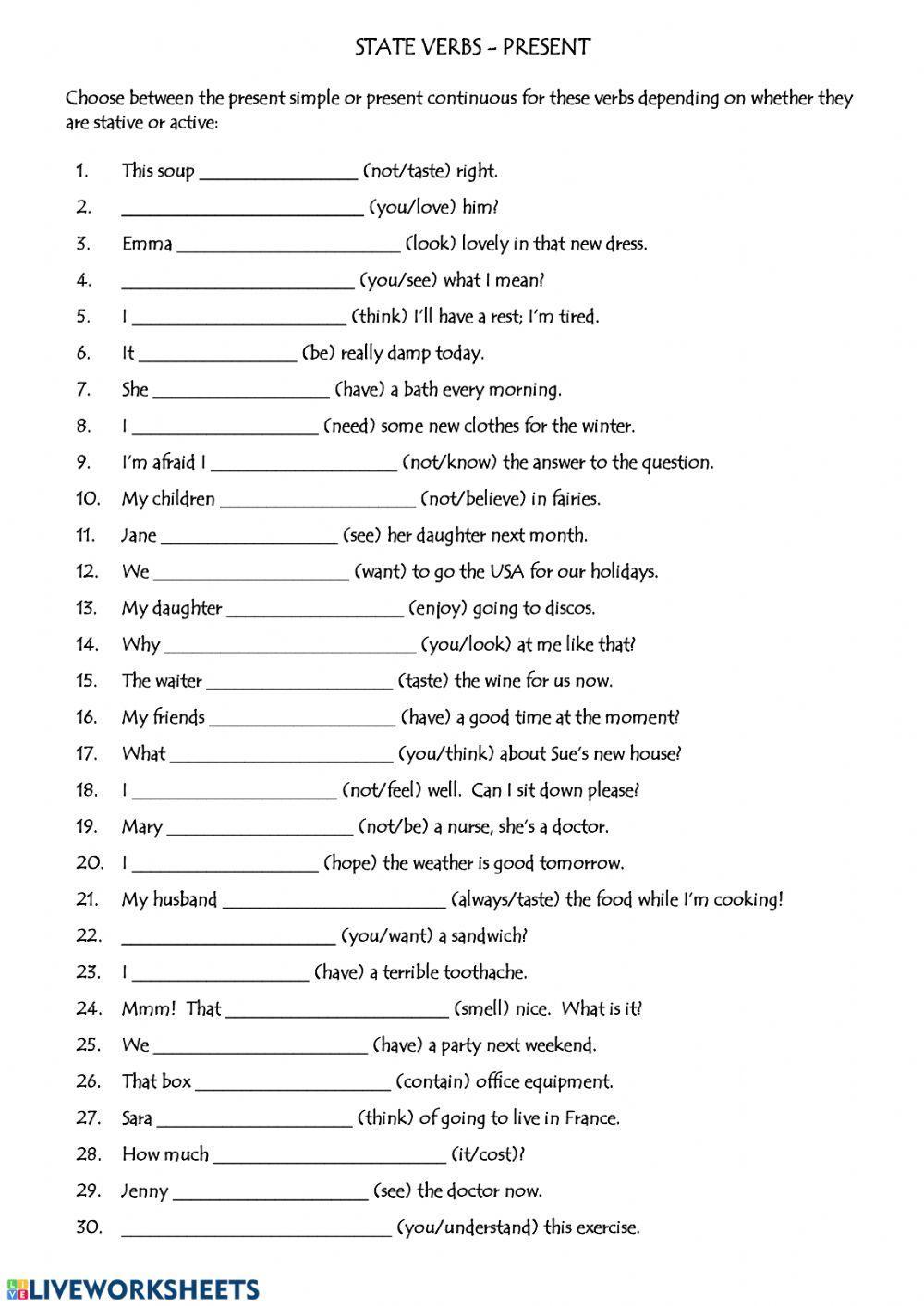
Present Simple Present Continuous Statives worksheet Live Worksheets
Dynamic Verbs and Stative Verbs Exercise 01 Put the verbs in brackets in their correct form. Some verbs are stative verbs and some are dynamic verbs. Use the simple present or present progressive tense. Press "Check" to check your answers. Use the "Hint" button to get a free letter if you don't know.
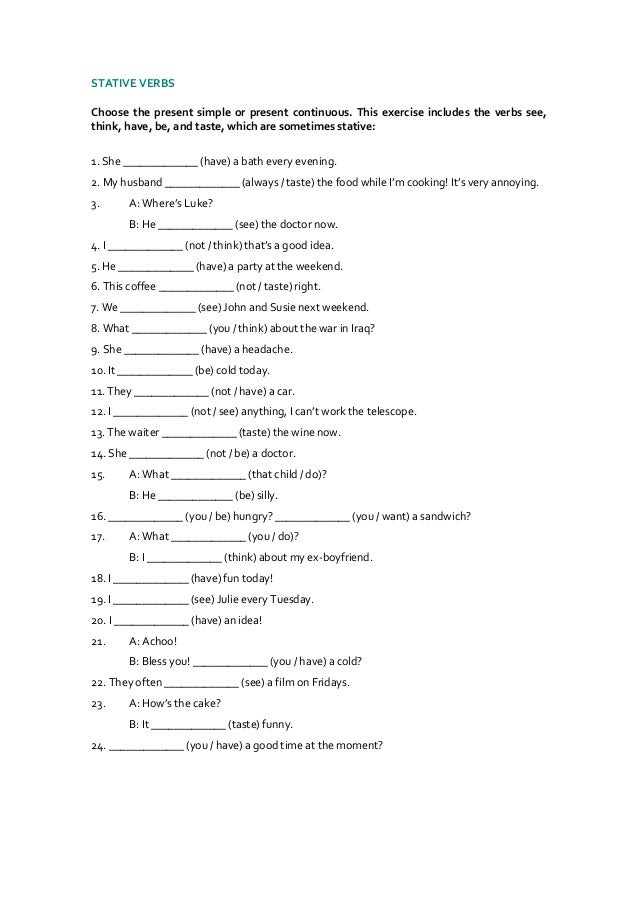
A. stative verbs
Exercise 3 Fill in the gaps with the verb in brackets in the present simple or continuous form. Use the simple form with stative verbs and the continuous form with dynamic verbs. EXAMPLE: Joe believes (believe) in ghosts. 1 John (think) about his future. 2 Ali (have) three sisters. 3 It (smell) like something is burning.
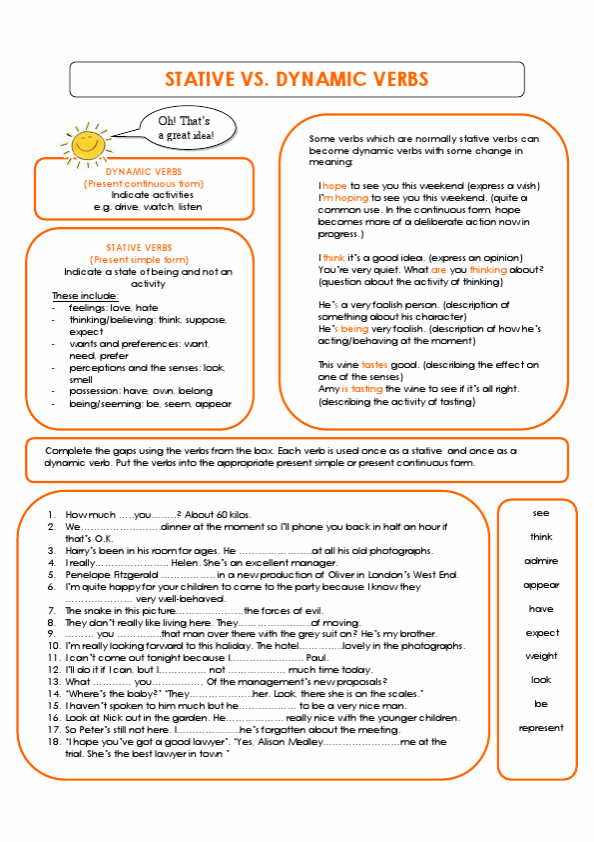
stative verbs worksheet stative verbs worksheets and online exercises
Stative verbs are a special group of verbs that describe an abstract action like feelings, attitude, cognitive processes. These exercises will help you learn the main feature of stative verbs: we don't put them onto continuous tenses. If you would like to study how state verbs are used with particular tenses, please see the related topics below.
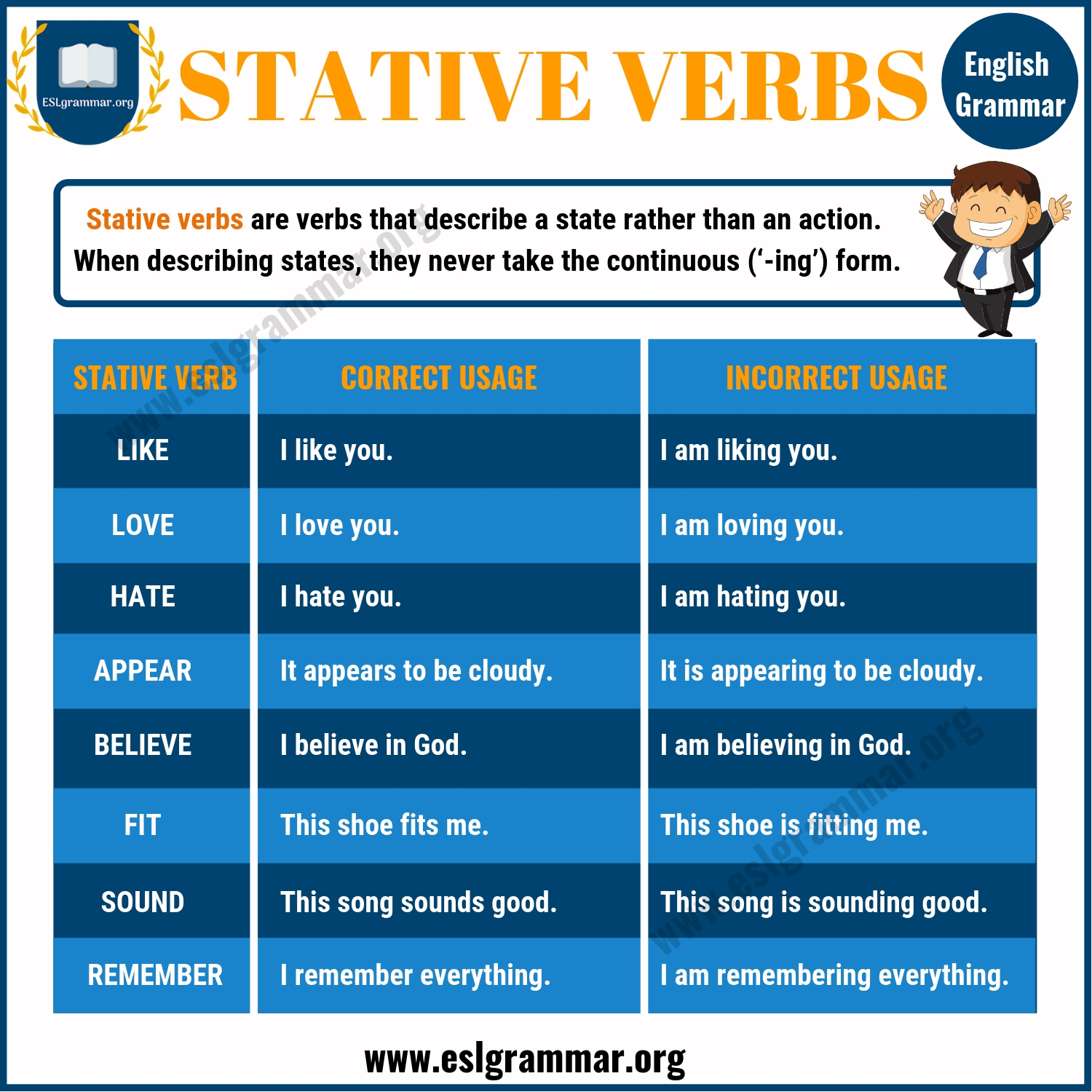
Stative Verbs Definition and Useful Examples in English ESL Grammar
A verb is classified as a stative verb if it expresses a condition or state of being rather than an action. For example, "Jessie loves sushi." The verb love doesn't display an action but states a feeling or opinion. Let's read some more examples of stative verbs in sentences: This yellow duffel bag belongs to Fia.

STATIVE VERBS with keys added English ESL Worksheets for distance
Stative Verbs 1 Choose the present simple or present continuous. This exercise includes the verbs see, think, have, be, and taste, which are sometimes stative. Go back to the main stative verbs page Download a list of stative verbs in PDF here Do you want to master English grammar? Click here to read about the membership.
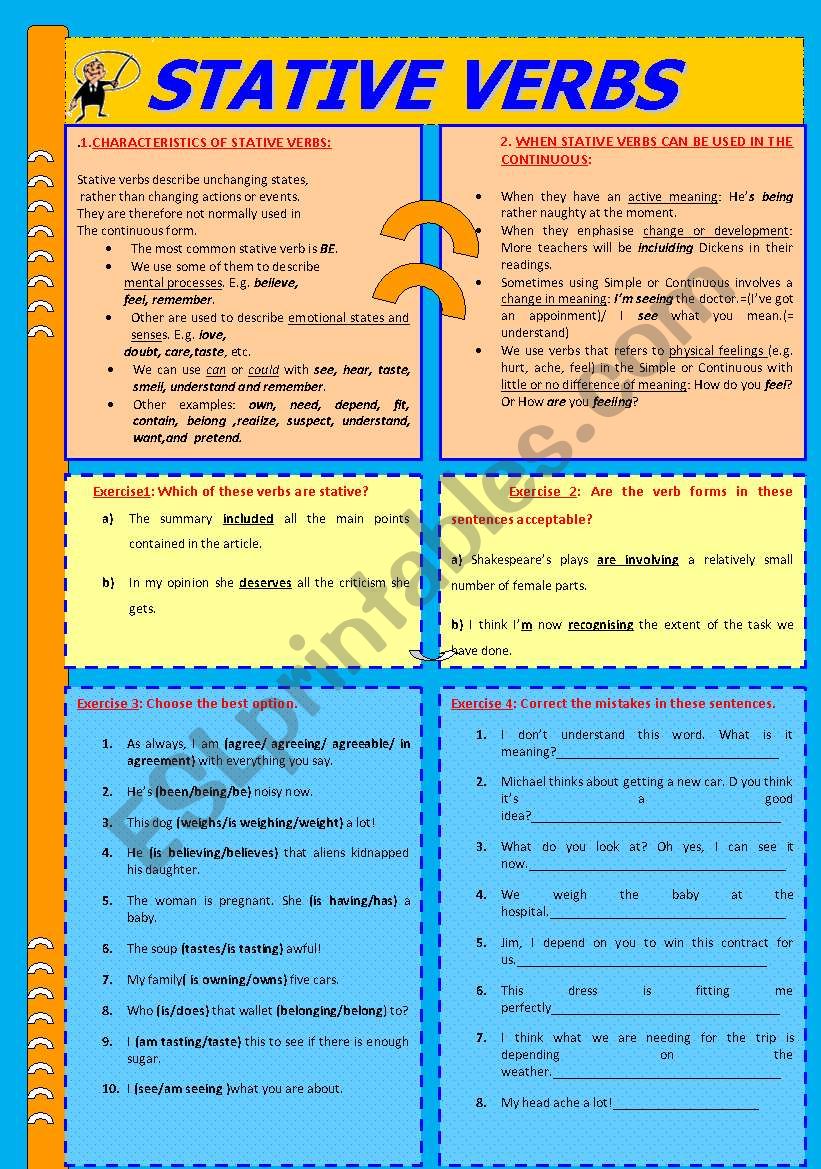
stative verbs interactive worksheet present simple or continuous
Man: Wow, it feels so soft. Woman: It is. It is so comfy too. Man: It looks comfy. I want one. Woman: Well, Christmas is almost here. Maybe someone special might get you one. Man: Ooh! That sounds promising.
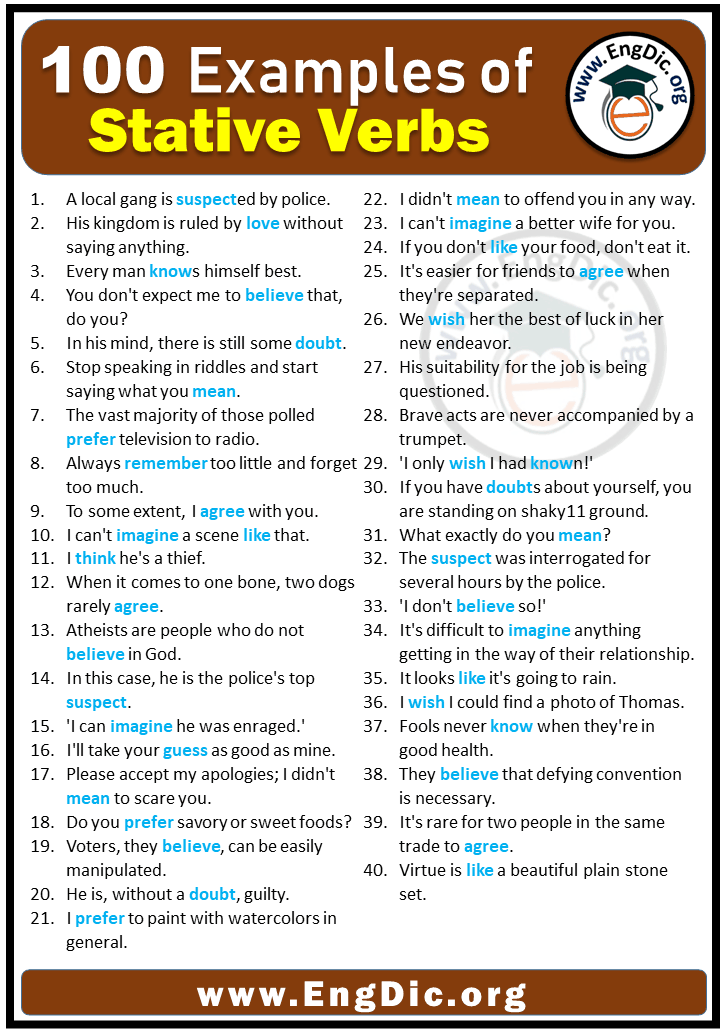
100 Examples of Stative Verbs in Sentences EngDic
Rules and exercises . 9995 uses. pauks. Stative verbs. An exercise in which. 4127 uses. sariyse. Stative verbs. I put this document . 3090 uses. paddydog. Stative Verbs. This is a simple des. 1283 uses. Ayelyn. Stative Verbs. This lesson is a gra. 329 uses.. STATIVE VERBS with k. A revision of the st.

stative verbs worksheet stative verbs interactive worksheet Adeline
Grammar explanation Stative verbs describe a state rather than an action. They aren't usually used in the present continuous form. I don't know the answer. I'm not knowing the answer. She really likes you. She's really liking you. He seems happy at the moment. He's seeming happy at the moment. Stative verbs often relate to:

English Grammar Stative Verbs
button below! Grammar Worksheet Stative Verbs. Complete the 16 sentences by using the words in the box. ANSWER KEY and percentage conversion chart on Page 2. Intermediate to Advanced Level. Approximately 15 minutes. . Download the PDF file by clicking on the gold.

STATIVE VERBS with keys added worksheet Free ESL printable worksheets
Stative Verbs ruralcat Member for 4 years 1 month Age: 9+ Level: A2 Language: English (en) ID: 57157 03/01/2020 Country code: TR Country: Turkey School subject: English as a Second Language (ESL) (1061958) Main content: Stative verbs (2010582) Usage of non progressive verbs Other contents: Verb tenses, present continuous Loading ad.
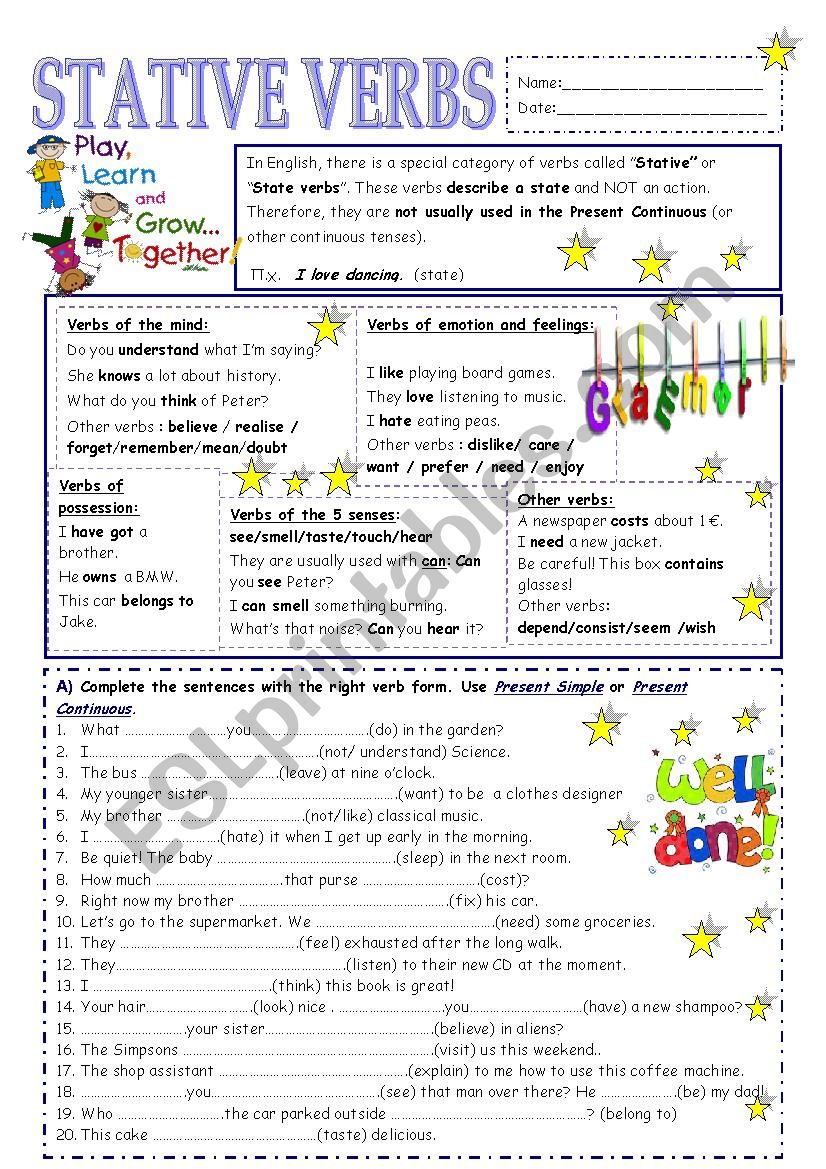
stative verbs worksheet stative verbs worksheets and online exercises
A stative verb is a type of verb that describes a state of being or perception. Stative verbs can refer to mental (e.g., "believe") or emotional states (e.g., "dislike"), as well as physical states or qualities (e.g., "contain"). Stative verbs can be used to express possession, opinions, emotions, senses, and other states like.